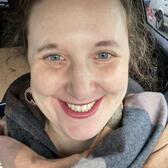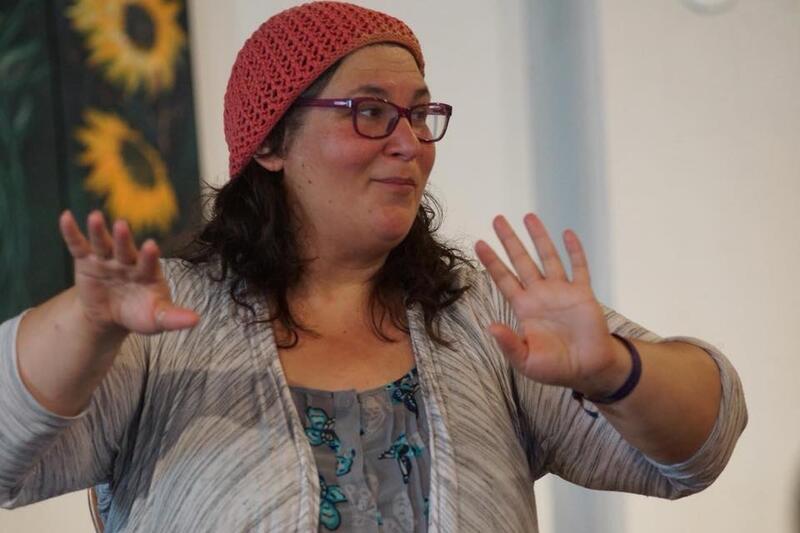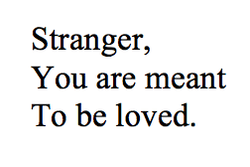Why We Need Fat Torah
My friend and colleague told me yesterday that if God exists—and she’s an atheist, so the jury’s out—then surely God would want me to stand up for my boundaries and protect my body from harm. This should not be a controversial statement. As a good third-wave feminist, I absolutely believe that all bodies are beautiful, lovable, and worthy of protection.
Yet because my body happens to be female, fat, and disabled, controversial is precisely how it feels to grapple with the simple idea that my body, too, is worthy of love and care. When I look at most of the high-profile Jewish women of my generation, I see bodies that are nothing like mine. I see bodies that are thin, lithe, graceful, fluent in the feminine (and feminized) arts of worship and being made visible. I see women whose bodies are an expression of the ideals of femininity that I, too, was raised with: the ideal that says that being attractive to the gaze of the male consumer is the most important thing we can be. I see women whose lives are an expression of the ideals of Jewish femininity that I was raised with—that getting married, having babies, and cooking Shabbat dinners each week are the greatest accomplishments we can ever hope to achieve.
What happens to the person who is force-fed these ideals, only to discover herself in a body that will never live up to them? What happens to those of us who find ourselves always on the outside, whose disabilities are seen only as brokenness, whose fatness is seen as a barrier to perfection? What happens when we encounter Jewish communities, Jewish men, conditioned to view us as inferior? When these things happen, we must seek out ways to reclaim self-love on our own terms.
The women—including the Jewish women—I most admire have done exactly that. These women are far from “perfect.” I love them for the ways they have rebuilt their self-esteem and a clear-eyed sense of identity out of the places where they have been most hurt by a society that has sometimes rejected and cursed them. I love them for the ways they have turned their scars into works of art. When it comes to my disabilities, some days, I can almost believe in the possibility of a community that will not be repulsed by my scars.
But when it comes to my fatness, all I see are the ways I have failed. I look in the mirror and imagine the person I hoped to be—and then I see the person that I am, shaped by the traumas and choices I have made. I find that very little in my Hebrew school upbringing or my Conservative synagogue’s emphasis on the binaries of woman/man and bad/good gives me comfort. I am bound by my Jewishness to the idea that perfection exists, that the world can be made whole again. At the same time, I am bound by the patriarchal influences of my upbringing to the idea that I should be punished for not being perfectly whole in a broken world.
That is why I need Rabbi Minna Bromberg and Fat Torah in my life. Rabbi Bromberg started Fat Torah as a way of combating fatphobia and, in her words, “bringing fat liberation to Jewish communal life." The project aims to equip fat activists with the spiritual support and ritual guides we need to sustain our work, and offers workshops and tools to allies in Jewish community who want to confront weight stigma in their lives and in themselves. Fat Torah facilitates workshops about bodies and weight and food in synagogues and other Jewish spaces. It teaches that we are all connected to God, we are all of God, no matter what we look like. Fat Torah inspires me to fight for a world that I can live in, while trying to stay connected to everything about Jewish community that is sustaining and beautiful.
Jewish organizations looking to be more accountable and inclusive should consider having Rabbi Bromberg facilitate a workshop, speak to a community member, offer a presentation, or provide truly body-positive ritual offerings. This is the next step in addressing the discrimination so many people face within Jewish community, a form of discrimination that often goes unnoticed. Just as I am grateful for the queer facilitators who broke the stigma around addressing heterosexism in Jewish spaces, just as I am grateful for the neurodivergent and trans activists who do the same on my behalf, so I am grateful to Rabbi Bromberg for her work.
Without ritual Jewish spaces that center the experiences of fat people, I am left with spaces that merely tolerate me, while too often making it clear they wish my offensive body would simply disappear. This is profoundly alienating for someone who was born and raised in Jewish community. The customs and cultural elements of these spaces sing to my soul. Yet because of the way my body is viewed, I have experienced condescension and cruelty from the very people I most want to feel connected to. Without the work that Rabbi Bromberg does to educate Jewish leaders about their own anti-fat biases, I might never feel that connection. Until fatphobia is erased from our Jewish lives, people with bodies like mine will never be able to truly come home.
For now, the Jewish places that I have tried to call home have so often abandoned me when I need them most. For years, I was active in a Jewish organization to which I felt deeply committed. A few years ago, this organization hosted a workshop about loving one’s body, facilitated by a straight-sized woman who had never been fat or experienced fatphobia or sizeism personally. This woman talked about the perils of things like “believing you are fat when you are not,” and what she called “the double whammy” of disliking yourself for disliking yourself. This is a good example of what body-positive workshops turn into when they’re facilitated by people who are not plus-size and/or not dedicated to fighting fat stigma.
When body-positive workshops center the lives and needs of people who are not fat, they erase the reality of the oppression that fat people face. Weight stigma does not really exist on a spectrum, where thin people’s fear of becoming fat is just another example alongside fat people’s experiences. Fat people are more likely to receive lower salaries for the same jobs, are less likely to be hired and more likely to be fired, and are far more likely to be severely bullied. The stress a thin person experiences from thinking they are fat is the stress of thinking they might have to experience life as a fat person.
Workshops like the one I attended are marketed to all women, but they are targeted to thin women, to able-bodied women, to women who experience control over their lives and bodies in a way people like me do not. As a disabled woman, as a nonbinary woman, as a woman with multiple chronic illnesses, and as a fat woman, my experience was nowhere to be seen in this workshop. And yet, these identities are common.
It’s difficult to explain to people who have never experienced weight discrimination that actually being fat is nothing like believing you are fat. I have friends who have been yelled at for leaving their houses and walking across the street in fat bodies. I’ve read about fraternities that incite their members to find and sleep with the fattest woman they can as part of a contest, and I want to warn all those freshman girls entering college thinking, “Maybe I’ll be safe here.” When encountering a new Jewish community, I’ve come to expect that at least one man, either newly single or trying to be, will approach me and try to convince me to see him as a legitimate romantic prospect, only to claim afterwards that I was the aggressor, and he is my victim. The number of Jewish men I’ve met who have played out an elaborate ritual of seduction and discarding, complete with romantic ballads and dinners and forgotten girlfriends and masks of disgust, is significant. It is the kind of number that our community chokes on during polite dinner conversation. It is the kind of number that reminds women like me that accountability and fat bodies are unlikely to take up space in the same sentence anytime soon.
This is why the work of fat activists like Rabbi Bromberg is essential. There is so much in Jewish community that is beautiful. Fat Torah teaches people to see bodies like mine as beautiful, too.







